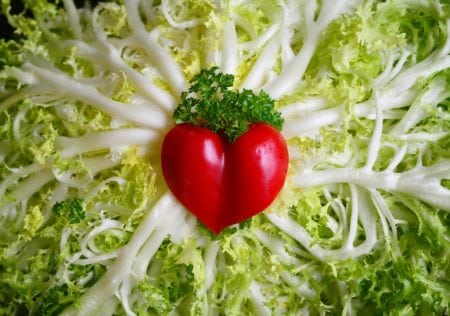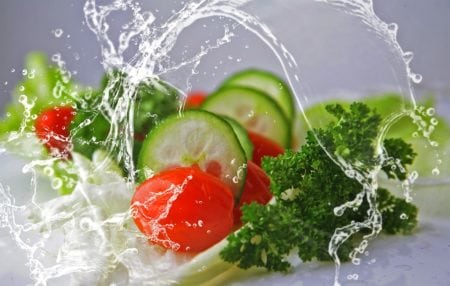 Picture Credit: congerdesign
Picture Credit: congerdesign
For adherents of vegetarianism, giving up meat has long been a norm of life. And is this food system so useful, as its followers claim?
What is vegetarianism?
The very term vegetarianism first appeared in 1811 in England. It was there that John F. Newton’s treatise, Return to Nature, or the Protection of the Vegetarian Regime, was published. Although the food system itself, built on the use of plant foods and the denial of the need to include products of animal origin in the human diet, arose long before the 19th century. The origins of vegetarianism go back to ancient antiquity, in particular to Ancient India, where the theory of the transmigration of souls was widespread. Believing in this religious doctrine people refused meat of animals, being afraid to disturb the souls of dead people staying in the body of the animal. For the same reason, Pythagoras, who lived in Ancient Greece, as well as his numerous followers, refused meat. Many years later, the beliefs of the Hindus lost their religious basis and were transformed into a moral and ethical attitude, which denied any violence, including the killing of animals. Followers of vegetarianism became such famous personalities as Leo Tolstoy, Plato, Plutarch, Hippocrates, Aristotle, Leonardo da Vinci, Jean-Jacques Rousseau, Adolf Hitler.
Types of vegetarianism
Among vegetarians, there is a division into:
- friurians (strict vegetarians) eat only cereals, fruits, nuts and vegetables;
- laktovegetarians (except vegetable food, they also allow milk, as well as dairy products);
- pesketarinets (do not hesitate to include fish, as well as mollusks and crustaceans in their diet);
- lacto-ovo vegetarians (except vegetables and fruits, eat milk and eggs).
The Pros of Vegetarianism
What else, besides moral and moral aspects, attracts people to vegetarianism? According to the adherents of this food system, the rejection of food of animal origin makes it possible to purify the body of the hormone of fear, which is thrown into the blood of the animal at the time of death. And although no research has found scientific confirmation, vegetarians continue to believe this. It is also very controversial that the refusal of meat makes a person softer and less aggressive. Practice shows that the Japanese, who in antiquity at all did not eat meat, and ate mostly rice and fish, were never a peace-loving nation, the same can be said about Adolf Hitler, who adhered to vegetarianism.
However, this power supply system has indisputable advantages. Among them:
- a low percentage of the development of cardiovascular diseases among vegetarians (plant foods do not contain cholesterol, which is deposited on the vessels, provoking the development of heart attack, atherosclerosis, stroke).
- among vegetarians, there are almost no people who are overweight (vegetable food is rich in fiber, which quickly fills the stomach, causing a feeling of satiety and at the same time contains few calories);
- a low level of development of cancer among vegetarians (cereals, vegetables and fruits contain a large number of vitamins and antioxidants that block the processes of aging and cell degeneration).

Picture Credit: Sponchia
Cons of vegetarianism
The main disadvantage of vegetarianism is that this food system limits the intake of animal proteins in the human body. But they are important for our body, as they are a plastic material for building tissues, immune bodies, and blood cells. Many vegetarians believe that vegetable proteins, which are rich in soy, peas, beans, beans, can become an alternative to animal proteins. However, the vegetable protein differs from the animal in its amino acid composition and is much worse absorbed by the body.
Among the vegetarians, severe forms of anemia are very common, and all because with the abandonment of meat they deprive themselves of such an important component as easily digestible iron (especially a lot of it in red meat).
Not enough vegetarians and vitamin A, which are rich in meat products. And mineral substances from plant foods are digested much worse than from animal products.
Strict vegetarianism is contraindicated in young children, pregnant women, people with tuberculosis, obstructive bronchitis, anemia. But people in adulthood without concomitant diseases of the digestive system, vegetarianism can benefit. Especially if you adhere to this diet as recommended by the Academy of Nutrition and Dietetics, that is, combine vegetable food with dairy and necessarily enrich the diet with vitamin-mineral complexes containing vitamins.
But do not rush to change the power supply system from a swoop. A sharp transition to a new food system can lead to emotional discomfort and physical ailments. Therefore, I would advise before such a decisive step to consult a gastroenterologist. If the gastrointestinal tract is not ready to process a large amount of fiber, various digestive disorders, dizziness, weakness may occur. Only a specialist can choose the optimal food system for you.
